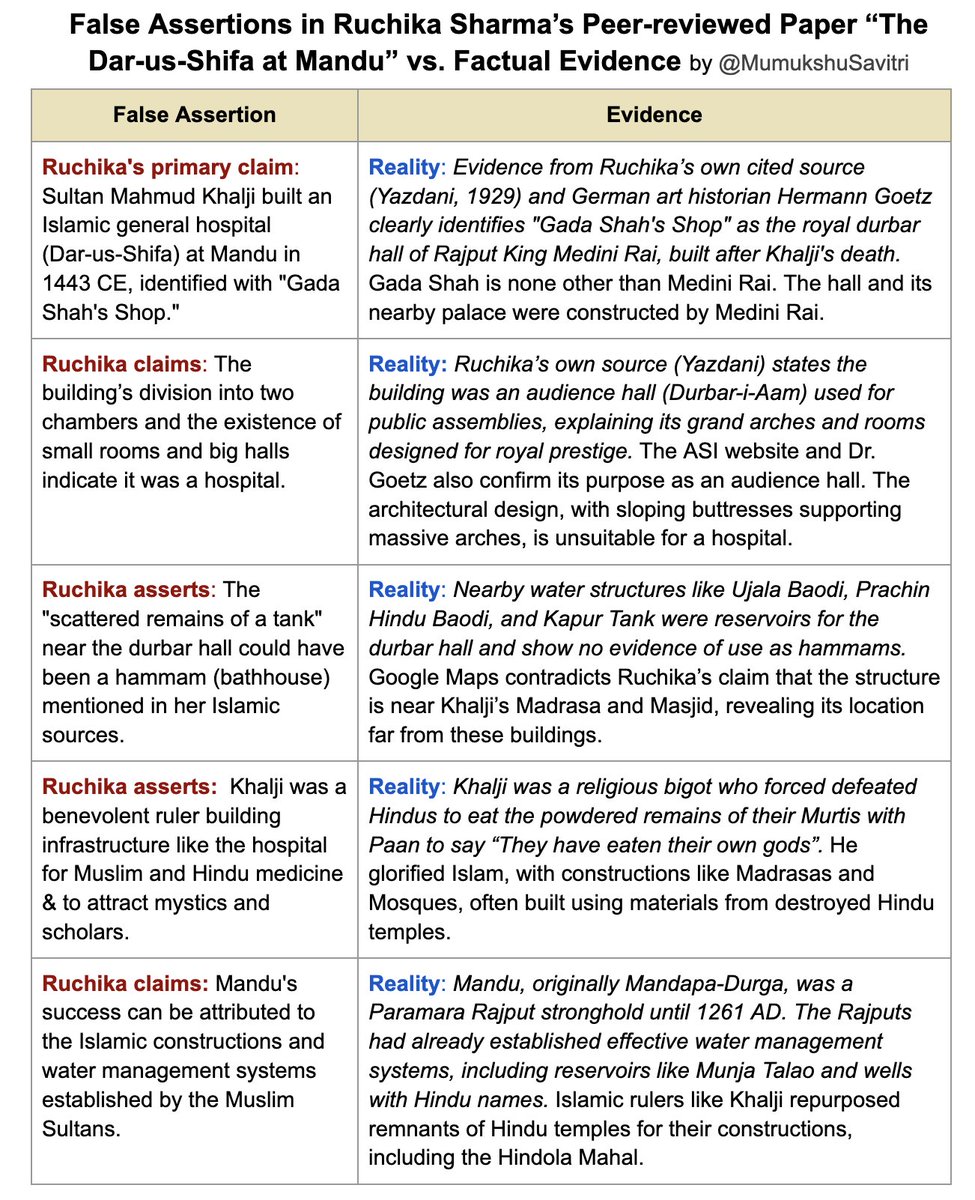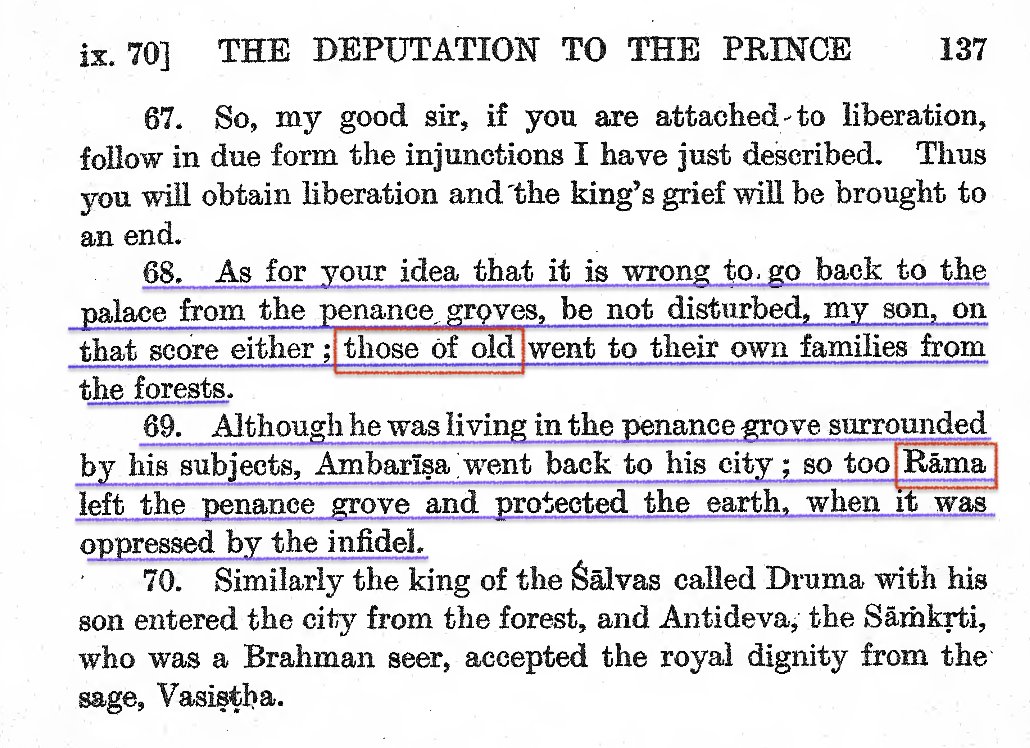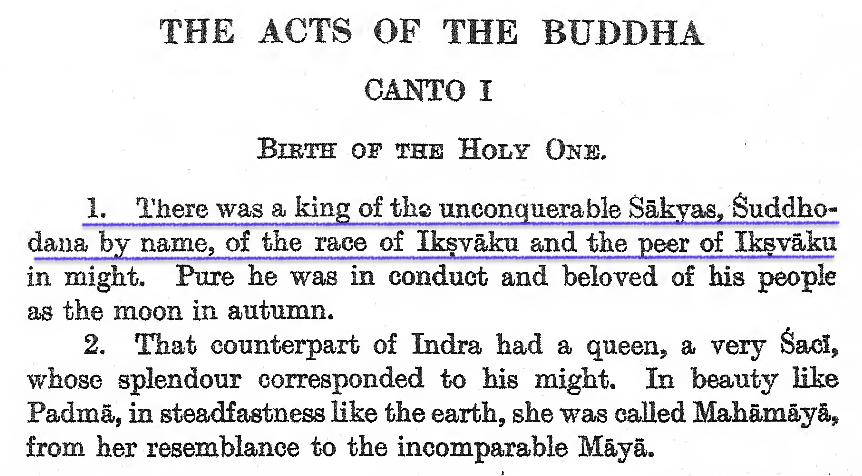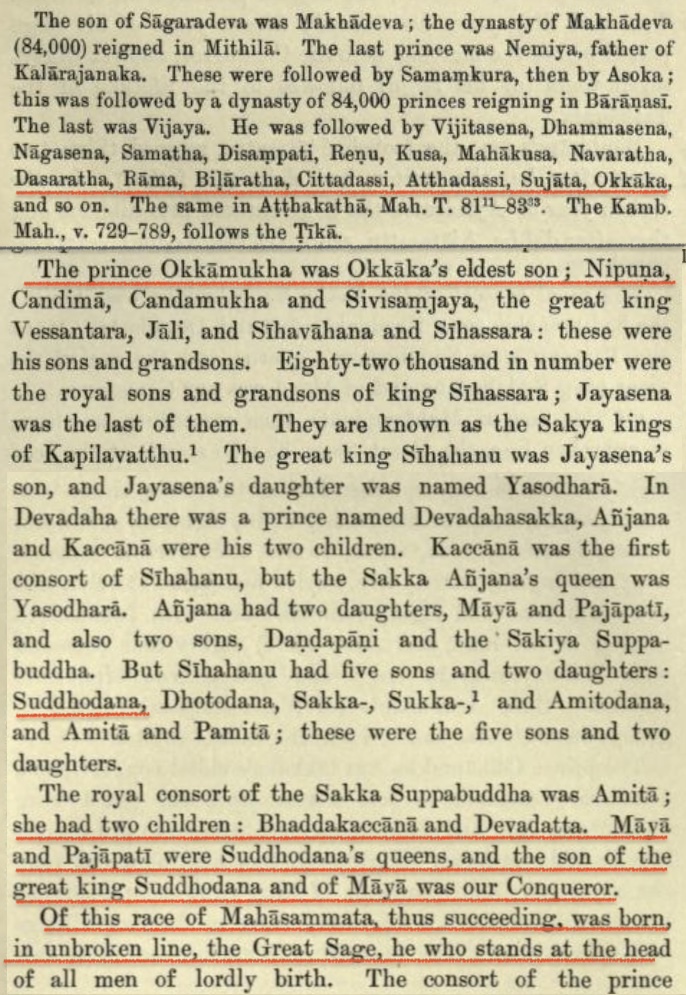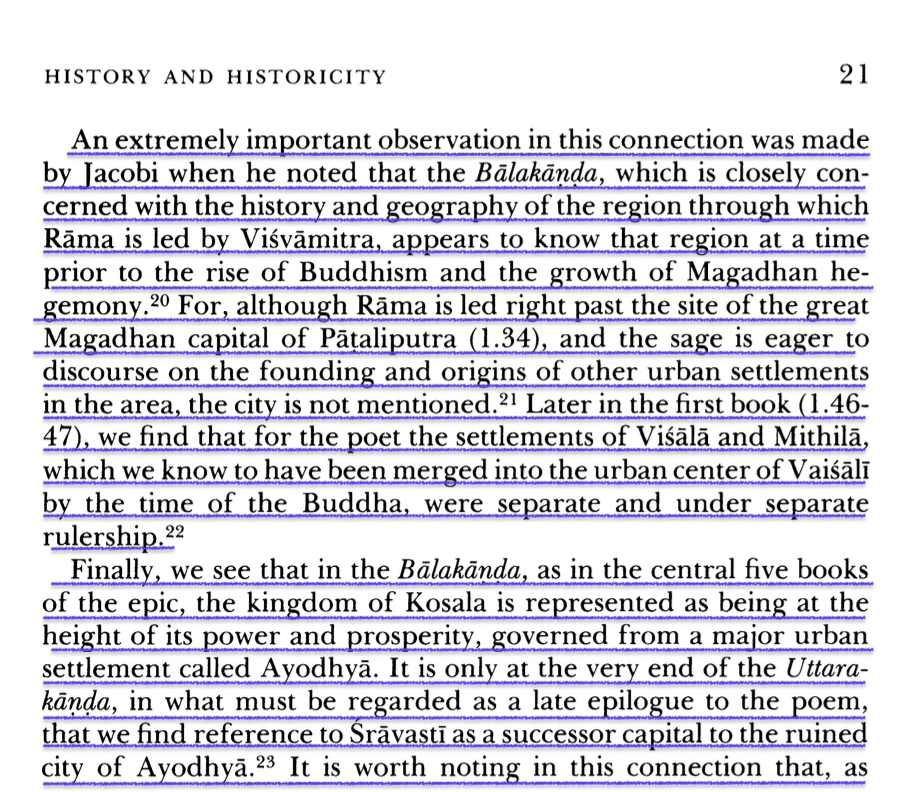1
This marble Murti of Lord Brahma was broken in 8 pieces, torso removed, desecrated & plundered by Mahmud of Ghazni from a Hindu temple he destroyed. It was discovered by the Italian Archaeological Mission in 1957 while excavating the ruins of Ghazni’s palace in Afghanistan.
This marble Murti of Lord Brahma was broken in 8 pieces, torso removed, desecrated & plundered by Mahmud of Ghazni from a Hindu temple he destroyed. It was discovered by the Italian Archaeological Mission in 1957 while excavating the ruins of Ghazni’s palace in Afghanistan.

2
The face was completely worn away - destroyed by thousands of feet stepping on it to mark Islamic supremacy over Hinduism. Following Islamic tradition, Mahmud had buried it under a doorway, so Muslims would constantly step on it as an act of ultimate humiliation for Hindus.


The face was completely worn away - destroyed by thousands of feet stepping on it to mark Islamic supremacy over Hinduism. Following Islamic tradition, Mahmud had buried it under a doorway, so Muslims would constantly step on it as an act of ultimate humiliation for Hindus.



3
Countless plundered Hindu artifacts like this Murti were abducted by Ghazni to be trampled upon. The Italian team stated that the find represented “an un-hoped for & stimulating evidence of trophies brought to Ghazni from India, following the triumphs of the Ghaznavids.”

Countless plundered Hindu artifacts like this Murti were abducted by Ghazni to be trampled upon. The Italian team stated that the find represented “an un-hoped for & stimulating evidence of trophies brought to Ghazni from India, following the triumphs of the Ghaznavids.”


4
Excavation of Ghazni's palace revealed irrefutable evidence that Hindu deities were defaced & kept as trophies with stolen artifacts. Another Hindu statue & a Jain Tirthankara were found in the Northern portion of the palace earlier & kept in the Royal Collection at Kabul.

Excavation of Ghazni's palace revealed irrefutable evidence that Hindu deities were defaced & kept as trophies with stolen artifacts. Another Hindu statue & a Jain Tirthankara were found in the Northern portion of the palace earlier & kept in the Royal Collection at Kabul.


5
Leftist historians tout the myth that Mahmud’s goal of accumulating wealth & power meant his attacks were secular & not religious wars. But the evidence of broken Hindu deities abducted & kept as trophies clearly proves his intention was solely to establish the rule of Islam.

Leftist historians tout the myth that Mahmud’s goal of accumulating wealth & power meant his attacks were secular & not religious wars. But the evidence of broken Hindu deities abducted & kept as trophies clearly proves his intention was solely to establish the rule of Islam.


6
Muslim historians like Sibli describe in detail how Mahmud transported an immense museum of invaluable treasures from India. The extent of plunder & damage to sacred Hindu artifacts from not just Somnath but also Mathura, Nagarkot, Kanauj, Gwalior & Thanesar, is immeasurable.
Muslim historians like Sibli describe in detail how Mahmud transported an immense museum of invaluable treasures from India. The extent of plunder & damage to sacred Hindu artifacts from not just Somnath but also Mathura, Nagarkot, Kanauj, Gwalior & Thanesar, is immeasurable.

7
In January 1026 CE, Mahmud defiled the Somnath temple, broke the holy Jyotirlinga into 4 pieces, killed thousands & plundered all its gold & jewels in the name of Islam. Minhaj-i-Siraj Juzjani's book Tabaqat-I-Nasiri & Al Biruni refers to this specific event in gory detail.


In January 1026 CE, Mahmud defiled the Somnath temple, broke the holy Jyotirlinga into 4 pieces, killed thousands & plundered all its gold & jewels in the name of Islam. Minhaj-i-Siraj Juzjani's book Tabaqat-I-Nasiri & Al Biruni refers to this specific event in gory detail.



8
Islamic historian Ferishta also states that Mahmud broke the Jyotirlinga into pieces, to be buried under the threshold of his Arusu ‘l-Falak (celestial Bride) mosque. Al Utbi records Mahmud using melted gold idols & materials from plundered Indian temples to build mosques.


Islamic historian Ferishta also states that Mahmud broke the Jyotirlinga into pieces, to be buried under the threshold of his Arusu ‘l-Falak (celestial Bride) mosque. Al Utbi records Mahmud using melted gold idols & materials from plundered Indian temples to build mosques.



9
Somnath was the target of Mahmud’s savagery because it was similar to Al-Manat - one of the 3 pre-Islamic deities in the Kaaba temple of Mecca which were destroyed by the Prophet of Islam. Thus 2 pieces of the Somnath Jyotirlinga were sent to be buried at Mecca & Medina.

Somnath was the target of Mahmud’s savagery because it was similar to Al-Manat - one of the 3 pre-Islamic deities in the Kaaba temple of Mecca which were destroyed by the Prophet of Islam. Thus 2 pieces of the Somnath Jyotirlinga were sent to be buried at Mecca & Medina.


10
In 1014, Mahmud plundered Taneshar famous for the holy temple of Chakrasvamin. The stunning Murti was made of special bronze & as tall as a man. Unable to destroy it, Mahmud had it uprooted & buried in the hippodrome in Ghazni with a piece of the Somnath Jyotirlinga.

In 1014, Mahmud plundered Taneshar famous for the holy temple of Chakrasvamin. The stunning Murti was made of special bronze & as tall as a man. Unable to destroy it, Mahmud had it uprooted & buried in the hippodrome in Ghazni with a piece of the Somnath Jyotirlinga.


11
Al - Utbi narrates Mahmud’s savage raid of Mathura in 1018, describing its immense splendor. Mathura had more than 1000 rich temples with one central temple (Janamasthan?) higher & grander than all the others embellished with 5 gold Murtis, rubies, sapphires, silver, etc.

Al - Utbi narrates Mahmud’s savage raid of Mathura in 1018, describing its immense splendor. Mathura had more than 1000 rich temples with one central temple (Janamasthan?) higher & grander than all the others embellished with 5 gold Murtis, rubies, sapphires, silver, etc.

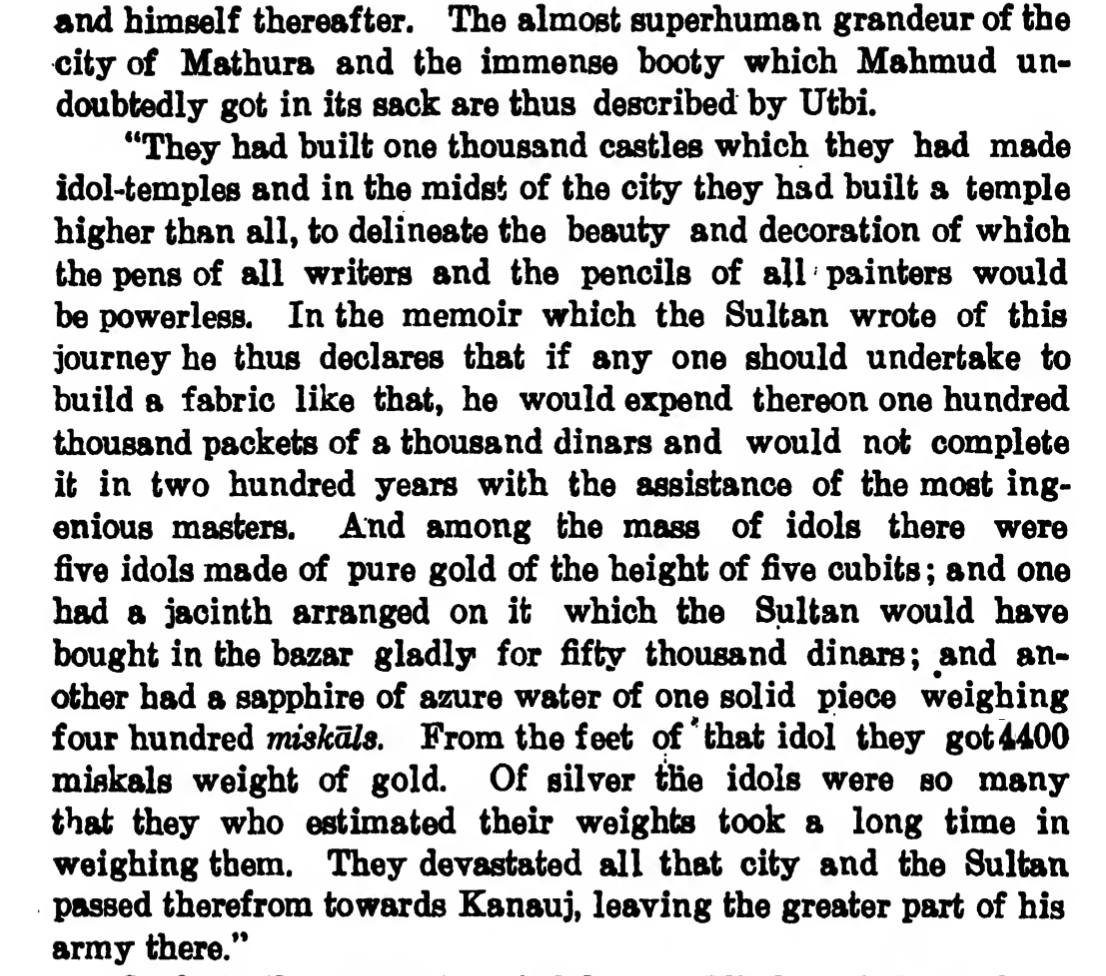
12
The extent of plunder can be estimated by the fact that the Feet of just one of the plundered Murtis yielded 4400 Miskals(~6 kg) of gold. After Kanauj, Mahmud destroyed a Brahma temple at Nardin- could this be the Brahma image discovered at Ghazni?
The extent of plunder can be estimated by the fact that the Feet of just one of the plundered Murtis yielded 4400 Miskals(~6 kg) of gold. After Kanauj, Mahmud destroyed a Brahma temple at Nardin- could this be the Brahma image discovered at Ghazni?

13
The loot from plundering & destroying Nagarkot temple (Kangra) was even more immense. Ferishta describes the plunder of 700,000 Gold Dinars, 700 Mans of gold & silver plate (12,600 kg), 200 Mans (5400 kg) of pure gold ingots & 2000 mans (36000 kg) of unwrought silver.

The loot from plundering & destroying Nagarkot temple (Kangra) was even more immense. Ferishta describes the plunder of 700,000 Gold Dinars, 700 Mans of gold & silver plate (12,600 kg), 200 Mans (5400 kg) of pure gold ingots & 2000 mans (36000 kg) of unwrought silver.


14
Mahmud returned to Ghazni with the immense booty, to celebrate a 3 day long festival & feast of Islam's triumph, where all the Hindu artifacts were displayed on golden thrones & tables of precious metals. Loot was distributed & desecrated deities were mocked by the Muslims.
Mahmud returned to Ghazni with the immense booty, to celebrate a 3 day long festival & feast of Islam's triumph, where all the Hindu artifacts were displayed on golden thrones & tables of precious metals. Loot was distributed & desecrated deities were mocked by the Muslims.

15
In 1019, Mahmud raided & destroyed the 7 forts of Kanauj, which held more than 10,000 temples. The Hindus who died defending them said the temples were 200, 000 years old. Besides the astronomical amount of plundered booty, Hindu heritage suffered irreversible damage.

In 1019, Mahmud raided & destroyed the 7 forts of Kanauj, which held more than 10,000 temples. The Hindus who died defending them said the temples were 200, 000 years old. Besides the astronomical amount of plundered booty, Hindu heritage suffered irreversible damage.


16
Mahmud was so dazzled by the beauty of Hindu temples, that he enslaved & abducted 1000s of craftspeople to Ghazni. He tried desperately to imitate the grandeur of Mathura & Somnath- by working them to death building & embellishing mosques, as pathetic copies to glorify Islam.
Mahmud was so dazzled by the beauty of Hindu temples, that he enslaved & abducted 1000s of craftspeople to Ghazni. He tried desperately to imitate the grandeur of Mathura & Somnath- by working them to death building & embellishing mosques, as pathetic copies to glorify Islam.

17
The grand Jami Masjid of Ghazni, where part of Somnath Jyotirlinga was buried, was built by Hindu slaves working day & night to carve marble, build domes & arches, gild paintings & pillars with gold from melted Murtis & “crush bodylike idols & fasten them in doors & walls.”

The grand Jami Masjid of Ghazni, where part of Somnath Jyotirlinga was buried, was built by Hindu slaves working day & night to carve marble, build domes & arches, gild paintings & pillars with gold from melted Murtis & “crush bodylike idols & fasten them in doors & walls.”


18
Ghazni's crowning achievement - the “Arusu’I-Falak” (Bride of Heaven) mosque was built using stolen carved wood panels, marble slabs, pillars gilded with gold from melted Hindu deities, carpets, lamps, gems & silver & gold jewels plundered from Hindu temples.

Ghazni's crowning achievement - the “Arusu’I-Falak” (Bride of Heaven) mosque was built using stolen carved wood panels, marble slabs, pillars gilded with gold from melted Hindu deities, carpets, lamps, gems & silver & gold jewels plundered from Hindu temples.


19
Mahmud’s plunder of Hindu temples was immensely profitable, given the treasure of bounties he stole. His savage hatred against Hinduism was so admired by Muslims, that one historian called him the "hammer" of the Hindus, with his fame as an “Islamic hero” reaching Baghdad.
Mahmud’s plunder of Hindu temples was immensely profitable, given the treasure of bounties he stole. His savage hatred against Hinduism was so admired by Muslims, that one historian called him the "hammer" of the Hindus, with his fame as an “Islamic hero” reaching Baghdad.

20
Mahmud is famous for turning Ghazni into the greatest Islamic state of the time with palaces, gardens, mosques, Madrasas, minarets, bridges, libraries etc. What is not famous however is that all these institutions were built & run by Hindu slaves kidnapped during his raids.


Mahmud is famous for turning Ghazni into the greatest Islamic state of the time with palaces, gardens, mosques, Madrasas, minarets, bridges, libraries etc. What is not famous however is that all these institutions were built & run by Hindu slaves kidnapped during his raids.



21
He is celebrated as the first “Sultan” for his intellect & "love" for art. In truth he was a savage fanatic & rapacious thief, with the sole purpose of religious war against Hindus. This "grand" trait earned him the titles of “Victor” and “Idol-breaker,” Ghazi and But-shikan.
He is celebrated as the first “Sultan” for his intellect & "love" for art. In truth he was a savage fanatic & rapacious thief, with the sole purpose of religious war against Hindus. This "grand" trait earned him the titles of “Victor” and “Idol-breaker,” Ghazi and But-shikan.

22
Ironically, the "Great Sultan’s" dynasty lost its power right after his death, & Ghaznī the great Islamic state was sacked & burnt to the ground in 1150–51 CE by the Ghūrids. Mongol armies of Genghis Khan, led by his son Ogedei Khan. razed it to rubble in the 13th c.

Ironically, the "Great Sultan’s" dynasty lost its power right after his death, & Ghaznī the great Islamic state was sacked & burnt to the ground in 1150–51 CE by the Ghūrids. Mongol armies of Genghis Khan, led by his son Ogedei Khan. razed it to rubble in the 13th c.


23
Today, Ghazni is a dump of poverty & violence, run by terrorists. Mahmud represented just one of many evil forces who tried to destroy Hinduism. But the resilience of an eternal Dharma ensured that the grand temples of Somnath & Mathura rise once again in shining splendor

Today, Ghazni is a dump of poverty & violence, run by terrorists. Mahmud represented just one of many evil forces who tried to destroy Hinduism. But the resilience of an eternal Dharma ensured that the grand temples of Somnath & Mathura rise once again in shining splendor


24
Sources:
Flight of Deities & Rebirth of Temples - Meenakshi Jain
Summary Report on the Italian Archaeological Mission in Afghanistan (1957-58)
Tabaqat I Nasiri - Minhaj-i Siraj Juzjani
Tarikh I Firishta - Firishta
Al-Hind: The making of the Indo-Islamic world - Andre Wink
Sources:
Flight of Deities & Rebirth of Temples - Meenakshi Jain
Summary Report on the Italian Archaeological Mission in Afghanistan (1957-58)
Tabaqat I Nasiri - Minhaj-i Siraj Juzjani
Tarikh I Firishta - Firishta
Al-Hind: The making of the Indo-Islamic world - Andre Wink
• • •
Missing some Tweet in this thread? You can try to
force a refresh





























